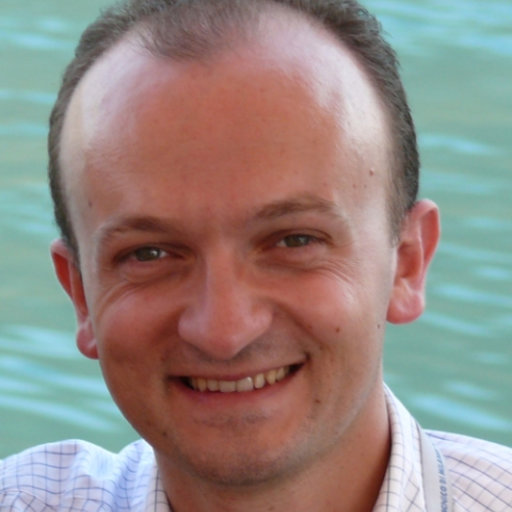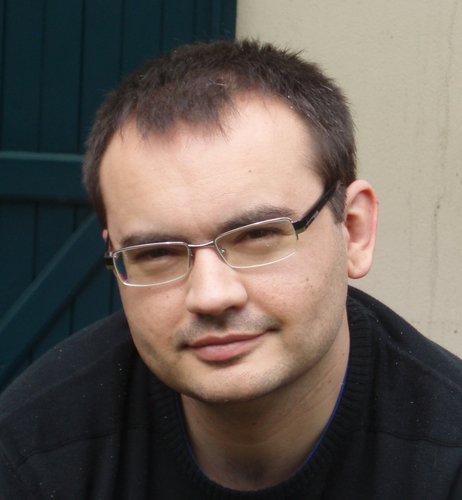In the context of its collaboration with UoC (Universitat Oberta de Catalunya) on IA for software Engineering and reverse, the DILS (the software and sytem engineering department of the institut CEA List), is happy to invite you to two exiting presentations connecting AI, Software Engineering and Model-based Engineering.
Program
- 14h00 - 14h45: Making Sense of and Giving Sense to Modeling and Models: How AI can help? , Marco Brambilla. Politecnico di Milano (30 min presentation and 15 min discussion).
- 14h45 - 15h30: Modeling and AI: friends or foes?, Jordi Cabot, UOC (30 min presentation and 15 min discussion).
Registration is free but mandatory. Please send an email to diane.bahrami@cea.fr
Making Sense of and Giving Sense of and Giving Sense to Modeling and Models : Comment l'IA peut-elle vous aider ?
Abstract: While modeling approaches have been around for a long time, they never reached the adoption and success levels they were expected to. Analysts attribute this to various problems, including conceptual issues, tooling problems, and mismatch with respect to the market demands. On the other hand, modeling practitioners fight this interpretation and push forward a research and adoption agenda that sometime clashes with these aspects. This talk will advocate the possible solutions that could improve adoption and acceptance of modeling through the hybridization of the approaches with techniques coming from other disciplines, mainly in the field of machine learning and artificial intelligence. The talk will showcase some examples and experiments that show how generative approaches and descriptive approaches (in AI sense) can increase the added value of modeling and how consumer oriented assistance techniques (like voice assistants) can improve the coverage of use cases where models can be useful and potentially expand the user base.
 Short bio: Marco Brambilla is associate professor at Politecnico di Milano. He is active in research and innovation, both at industrial and academic level. His research interests include data science, software modeling languages and design patterns, crowdsourcing, social media monitoring, big data analysis and modeling. He has been visiting researcher at CISCO, San Josè, and University of California, San Diego. He has been visiting professor at Dauphine University, Paris. He is the main author of the OMG standard IFML (Interaction Flow Modeling Languages). He is founder of the startup Fluxedo, focusing on social media analysis and Social engagement, and of the company WebRatio, devoted to software modeling tools for Web, Mobile and Business Process based software applications. He is author of various international books on modeling and information management. He authored more than 200 research articles published in journals and conferences. He was awarded various best paper prizes and gave keynotes and speeches at many conferences and organisations. He runs research projects on data science and industrial projects on data-driven innovation and big data. He participated in several European and international research projects. He has been reviewer of FP7 projects and evaluator of EU FP7 proposals, as well as of national and local government funding programmes throughout Europe. He has been PC chair of ICWE 2008, Berlin. He is PC member of several conferences and workshops, he organized several workshops and conference tracks so far, and he has been reviewer for many scientific journals. He is associate editor of SIGMOD Records, Journal of Web Engineering, and Advances in Human Computing Interactions.
Short bio: Marco Brambilla is associate professor at Politecnico di Milano. He is active in research and innovation, both at industrial and academic level. His research interests include data science, software modeling languages and design patterns, crowdsourcing, social media monitoring, big data analysis and modeling. He has been visiting researcher at CISCO, San Josè, and University of California, San Diego. He has been visiting professor at Dauphine University, Paris. He is the main author of the OMG standard IFML (Interaction Flow Modeling Languages). He is founder of the startup Fluxedo, focusing on social media analysis and Social engagement, and of the company WebRatio, devoted to software modeling tools for Web, Mobile and Business Process based software applications. He is author of various international books on modeling and information management. He authored more than 200 research articles published in journals and conferences. He was awarded various best paper prizes and gave keynotes and speeches at many conferences and organisations. He runs research projects on data science and industrial projects on data-driven innovation and big data. He participated in several European and international research projects. He has been reviewer of FP7 projects and evaluator of EU FP7 proposals, as well as of national and local government funding programmes throughout Europe. He has been PC chair of ICWE 2008, Berlin. He is PC member of several conferences and workshops, he organized several workshops and conference tracks so far, and he has been reviewer for many scientific journals. He is associate editor of SIGMOD Records, Journal of Web Engineering, and Advances in Human Computing Interactions.
Modeling and AI: friends or foes?
Abstract: AI is infiltrating all industries and the software industry is no exception. But is this a fad or really the future of software development? And what role could modeling play in this future? In this talk, we will review promising applications of AI techniques in model-driven engineering and the many challenges that remain to be solved before we see the first real and usable AI-enhanced modeling IDE. Among other examples, we will discuss how neural networks can kill model transformation languages or how virtual modelers could become our ideal "pair designer". But make no mistake, AI needs us more than we need AI. The future of AI is model-based. During the talk, we will also cover how modeling can help to bring AI to the masses and simplify the fragmented landscape of AI libraries, platforms and tools. Short bio: Jordi Cabot is an ICREA Research Professor at Internet Interdisciplinary Institute (Universitat Oberta de Catalunya) where he leads the SOM (Systems, Software and Models) Lab. Previously, he was the leader of the AtlanMod team, an INRIA research group at École des Mines de Nantes (France) and a post-doctoral fellow at the University of Toronto. He received his BSc and PhD degrees in Computer Science from the Technical University of Catalonia. His research falls into the broad area of systems and software engineering, especially promoting the rigorous use of software models and engineering principles in all software engineering tasks while keeping an eye on the most unpredictable element in any project: the people involved in it. Current research topics include the development of pragmatic formal verification techniques, the study of scalability challenges in the design and deployment of large systems and the role AI can play in (model-driven) software development (and vice versa).
 Short bio: Jordi Cabot is an ICREA Research Professor at Internet Interdisciplinary Institute (Universitat Oberta de Catalunya) where he leads the SOM (Systems, Software and Models) Lab. Previously, he was the leader of the AtlanMod team, an INRIA research group at École des Mines de Nantes (France) and a post-doctoral fellow at the University of Toronto. He received his BSc and PhD degrees in Computer Science from the Technical University of Catalonia. His research falls into the broad area of systems and software engineering, especially promoting the rigorous use of software models and engineering principles in all software engineering tasks while keeping an eye on the most unpredictable element in any project: the people involved in it. Current research topics include the development of pragmatic formal verification techniques, the study of scalability challenges in the design and deployment of large systems and the role AI can play in (model-driven) software development (and vice versa). Apart from his scientific publications, he writes and blogs about all these topics in his Modeling Languages portal.
Short bio: Jordi Cabot is an ICREA Research Professor at Internet Interdisciplinary Institute (Universitat Oberta de Catalunya) where he leads the SOM (Systems, Software and Models) Lab. Previously, he was the leader of the AtlanMod team, an INRIA research group at École des Mines de Nantes (France) and a post-doctoral fellow at the University of Toronto. He received his BSc and PhD degrees in Computer Science from the Technical University of Catalonia. His research falls into the broad area of systems and software engineering, especially promoting the rigorous use of software models and engineering principles in all software engineering tasks while keeping an eye on the most unpredictable element in any project: the people involved in it. Current research topics include the development of pragmatic formal verification techniques, the study of scalability challenges in the design and deployment of large systems and the role AI can play in (model-driven) software development (and vice versa). Apart from his scientific publications, he writes and blogs about all these topics in his Modeling Languages portal.






